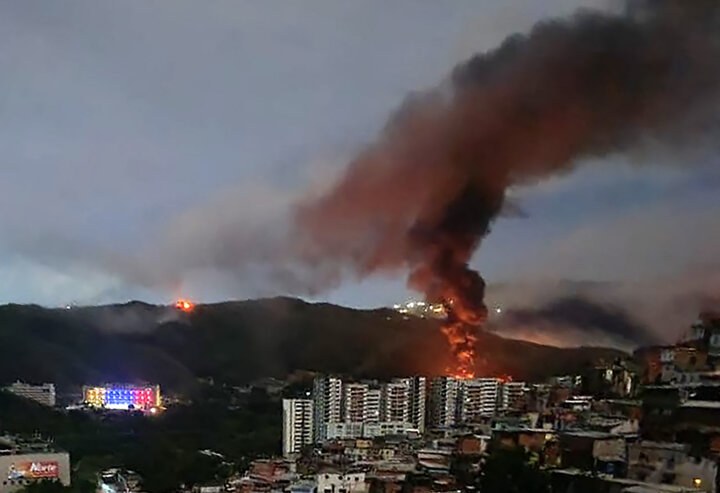-
 2026-01-04 21:07
2026-01-04 21:07
By staff writer
Worldwide anger at state-run abduction
The U.S. government’s unlawful abduction of Venezuela’s elected president has ignited protests and fierce condemnations across continents
TEHRAN – The United States has crossed a dangerous line with its military assault on Venezuela and the kidnapping of President Nicolas Maduro and his wife, Cilia Flores. What Washington presents as justice is, in reality, a blatant violation of international law and Venezuela's sovereignty. By abducting a sitting head of state and declaring that the U.S. will "run the country," President Donald Trump has revived the darkest traditions of imperialism in Latin America.
-

By Sahar Dadjoo
“Game Over Israel”: Red card pressure to hunt down Gaza genocide perpetrators
Ashish Prashar shares the story behind his global campaign in an exclusive interview with Tehran Times
TEHRAN- Ashish Prashar is a political strategist, believes that if Israel were removed from football, it would send an “unmistakable global message” that genocide which has been happening in Gaza for more than two years is unacceptable.
-

By Shahrokh Saei
Iran is not Venezuela: Play with fire, get burned
TEHRAN – After the U.S. military strikes inside Venezuela early Saturday and the abduction of President Nicolás Maduro, Donald Trump appears convinced he can replay the same scenario in Iran.
-

By staff writer
Machado as pawn: Venezuela on Washington’s imperial chessboard
TEHRAN – María Corina Machado’s role in Venezuela’s crisis shows how powerful nations use local leaders for their own goals. For years she was seen as the face of the opposition, someone who could stand against Nicolás Maduro.
-

By Sondoss Al Asaad
Kidnapping sovereignty: When law of the jungle replaces global order
BEIRUT—The modern international system is built—at least in principle—on a foundational norm: the sovereignty of states.
-

Venezuela thanks Iran for solidarity as Caracas vows to resist US aggression
TEHRAN – Venezuelan Foreign Minister Yvan Gil Pinto has expressed his gratitude to Iran for voicing solidarity with his country.
Politics
-
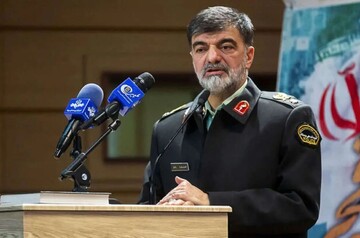
Iran begins ‘targeted arrest’ of rioters
TEHRAN – Iran’s Police Chief Brigadier General Ahmad-Reza Radan announced Sunday that law enforcement forces have begun arresting individuals whose incitement of violence—carried out under the direction of foreign spy agencies—has become clear.
-

Border guards foil attempted terrorist infiltration in SE Iran
ZAHEDAN – Iranian border security forces successfully intercepted and repelled an attempted terrorist infiltration along the border in Saravan County, Sistan and Baluchestan Province—a development believed to be linked to ongoing attempts by Israel and the West to exploit peaceful economic protests in Iran.
-
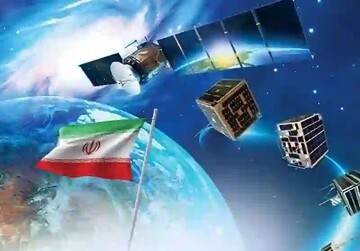
Iran moves to next stage in latest satellite missions following initial checks
TEHRAN – Iran has announced the successful orbital deployment and initial testing of three new satellites. According to a Sunday statement from the Iran Space Agency, the Zafar, Paya, and Kowsar satellites are now in a multi-week orbital testing phase, having completed their first series of in-orbit checks with an overall favorable technical status.
Sports
-

Igor Sergeev officially joins Persepolis
TEHRAN – Igor Sergeev, who spent last season with Pakhtakor, has officially joined Iranian giants Persepolis.
-

Iranian wrestling champions visit cancer patients
TEHRAN - World heavyweight champion Amirhossein Zare, Greco-Roman wrestling world gold medalist Ali Arsalan, and world junior Greco-Roman champion Fardin Hedayati visited cancer patients in a humanitarian initiative aimed at offering support and encouragement.
-

Iranian women athletes emerge as a driving force
TEHRAN - It is impossible to emphasize social health while ignoring or downplaying the role and status of women. In Iran, women, as the cornerstone of the family, play a fundamental and essential role in social vitality and family well-being.
Culture
-

“Conqueror of Khaybar” monument unveiled at Tehran’s Imam Khomeini Square
TEHRAN – Coinciding with the blessed birth anniversary of Imam Ali (AS) and the anniversary of the martyrdom of General Qassem Soleimani, a large monument titled “Conqueror of Khaybar” was unveiled at Tehran’s Imam Khomeini Square on Saturday.
-

Fajr festival highlights Iranian national identity in official poster
TEHRAN- The poster for the 44th Fajr National Film Festival, inspired by an iconic image of veteran actor Ali Nassirian from the film “The Stone Lion,” directed by Masoud Jafari Jozani, was unveiled on Saturday.
-

24th Dhaka International Film Festival to host films by 13 Iranian directors
TEHRAN – The 24th Dhaka International Film Festival (DIFF) will host works by 13 Iranian filmmakers and two other directors will serve on the jury panels of various sections.
Economy
-
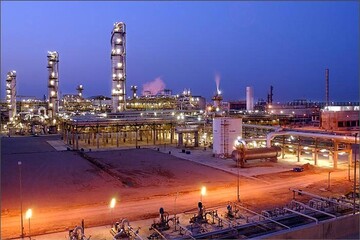
SPGC boosts domestic production of equipment by 15% in 9 months on year
TEHRAN – Domestic production of equipment at Iran’s giant South Pars Gas Complex (SPGC) rose by more than 15 percent year on year over the first nine months of the current Iranian calendar year (late March-late December 2025), as domestic manufacturing and repair capabilities continued to expand, a senior official said.
-
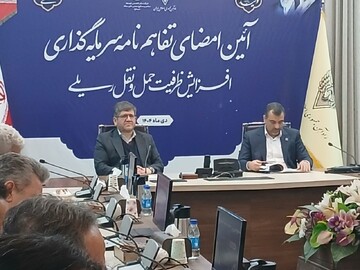
Rail cargo transport up 12% as Iran accelerates shift to freight rail
TEHRAN – Iran’s rail cargo transport rose 12 percent in the first eight months of the current Iranian year (March 21-November 21, 2025), highlighting a faster shift toward rail-based freight as authorities seek to cut logistics costs, ease pressure on roads and expand export capacity.
-

Eurasia Exhibition, operational platform for implementing FTA
TEHRAN- The managing director of Tehran International Exhibitions Company reported quantitative and qualitative growth in the fourth edition of the International Eurasia Exhibition, describing the event as the most cost-effective and efficient tool for the sustainable development of regional markets and for building trust among enterprises.
Society
-

National polio vaccination campaign to target over 1m children
TEHRAN – The first phase of the national immunization campaign for polio eradication, using domestically produced vaccines, will cover a total of 1.1 million Iranian and foreign children under the age of five.
-

Comprehensive plan developed to preserve luristanica Sorbus
TEHRAN – The Department of Environment (DOE) has developed a comprehensive plan to preserve luristanica Sorbus, a rare plant species that is native to Iran and is classified as critically endangered.
-
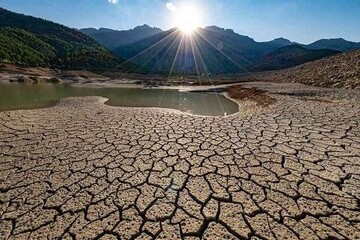
‘Climate change, sea level rise threaten food security in southern Iran’
TEHRAN – Global warming and ice sheet melting pose serious threats to food security in the south of the country, Ahad Vazifeh, the head of the Meteorological Organization, has warned.
Tourism
-
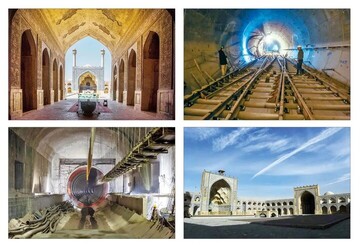
Extension of Isfahan subway project awaits UNESCO approval
TEHRAN—The extension of Isfahan’s Metro Line 2 near the city’s UNESCO-listed Jameh Mosque, also known as the Atiq Mosque, is under review at national and international levels and will proceed only after approval from UNESCO, officials said.
-
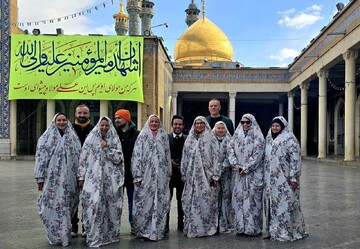
17 foreign tour groups visit Fatima Masumeh Shrine in Qom
TEHRAN - Seventeen foreign tour groups from nine countries have paid visits to the Fatima Masumeh Shrine in the city of Qom over the past week, the shrine’s international affairs office said.
-
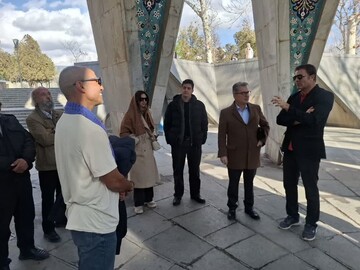
Turkish consul visits historical and tourism sites in Neyshabur
TEHRAN - Turkey’s consul general in Mashhad, Murad Erkul, has visited some historical and tourism sites in Neyshabur on an informal family trip, local cultural heritage officials said.
International
-

Worldwide anger at state-run abduction
TEHRAN – The United States has crossed a dangerous line with its military assault on Venezuela and the kidnapping of President Nicolas Maduro and his wife, Cilia Flores. What Washington presents as justice is, in reality, a blatant violation of international law and Venezuela's sovereignty. By abducting a sitting head of state and declaring that the U.S. will "run the country," President Donald Trump has revived the darkest traditions of imperialism in Latin America.
-

Machado as pawn: Venezuela on Washington’s imperial chessboard
TEHRAN – María Corina Machado’s role in Venezuela’s crisis shows how powerful nations use local leaders for their own goals. For years she was seen as the face of the opposition, someone who could stand against Nicolás Maduro.
-

Kidnapping sovereignty: When law of the jungle replaces global order
BEIRUT—The modern international system is built—at least in principle—on a foundational norm: the sovereignty of states.
Most Viewed
-
Everything you need to know about recent protests in Iran
-
Iran is not Venezuela: Play with fire, get burned
-
The law of the jungle: U.S. aggression tramples on Venezuelan sovereignty
-
Iran begins ‘targeted arrest’ of rioters
-
We will not back down against the enemy: Leader
-
“Game Over Israel”: Red card pressure to hunt down Gaza genocide perpetrators
-
Global condemnation mounts over Venezuela attacks
-
Worldwide anger at state-run abduction
-
Iran denounces US attack on Venezuela, calls it a violation of UN Charter
-
Iran moves to next stage in latest satellite missions following initial checks
-
Washington’s ‘vile’ violation of Bolívar’s homeland
-
Trump claims Maduro is 'captured’ and flown out of Venezuela
-
When miscalculation meets a civilisation-state
-
Venezuela and the Return of Colonial Seizure Politics
-
Border guards foil attempted terrorist infiltration in SE Iran











